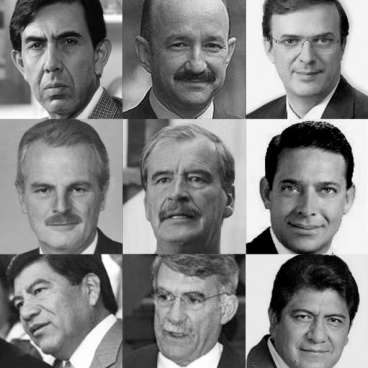Looks like a winner: Scientists demonstrate how much candidate appearances affect election outcomes

When you vote in an election, your choice is surely not influenced by anything as superficial as a candidate's looks, right?
Right?
New research from MIT political scientists shows that the appearances of politicians do indeed strongly influence voters — and that people around the world have similar ideas about what a good politician looks like. While few political observers would be surprised to learn that good looks earn votes, the MIT researchers have quantified a phenomenon that is more often assumed to be true than rigorously measured.
“Ever since Aristotle, people have written about the concern that charismatic leaders who speak well and look good can sway votes even if they do not share the people’s views,” acknowledges Gabriel Lenz, an associate professor in the Department of Political Science at MIT, and a co-author of the study.
To test this idea, though, Lenz and his colleagues showed voters in the United States and India pairs of candidate photos from real election matchups in Brazil and Mexico. When asked which candidate would make a better elected official, the participants in the study, regardless of where they lived, largely selected the same candidates. Moreover, their choices corresponded closely to the outcomes of those Brazilian and Mexican races, meaning the public attribution of good looks to a candidate is a leading indicator of a campaign’s result.
“We were a little shocked that people in the United States and India so easily predicted the outcomes of elections in Mexico and Brazil based only on brief exposure to the candidates’ faces,” says Lenz. “These are all different cultures, with different political traditions and different histories.”
In the study, the researchers showed voters pairs of candidates from 122 elections in Mexico and Brazil. The participants in the study were asked which candidate would be a better elected official. Respondents in India and the United States agreed with each other about 75 percent of the time when asked which candidate seemed superior; a group of respondents in the United States and Mexico agreed with each other about 80 percent of the time.
In turn, simply knowing which candidate the participants judged to have a superior appearance allowed the researchers to correctly predict the winner in 68 percent of Mexican elections and 75 percent of some Brazilian elections. “These are very large effects,” the authors note in the working paper, “Looking like a Winner: Candidate Appearance and Electoral Success in New Democracies,” which will be published in the journal World Politics this fall.
Lenz conducted the study along with Chappell Lawson, also an associate professor of political science at MIT, Michael Myers, a research affiliate with MIT’s Department of Political Science, and Andy Baker, a political scientist at the University of Colorado.
The paper is an “interesting and innovative study,” writes Panu Poutvaara, an economist at the University of Helsinki who also studies the influences of candidate appearances, responding to questions by e-mail. In Poutvaara’s view, by helping to confirm the general connection between good looks and ballot-box success, the study paves the way for future research that should address precisely why voters favor good-looking candidates: “Is it because voters either enjoy watching good-looking politicians on TV, or think that they are better in social interactions?”
Lenz and his colleagues are addressing this question from a slightly different angle in additional, ongoing research. In a forthcoming study, they find that “low-information voters” are especially likely to choose candidates based on looks. “These are people who don’t know much about politics, but watch a lot of TV,” says Lenz. The researchers are currently writing a paper based on this latter project.
More information:
Paper: “Looking like a Winner: Candidate Appearance and Electoral Success in New Democracies”:
web.mit.edu/polisci/research/glenz/WP_faces.pdf
Provided by Massachusetts Institute of Technology














